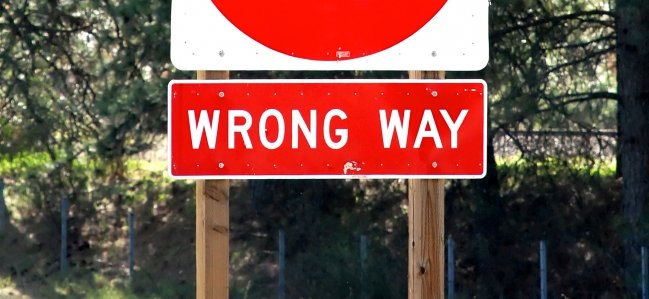Defending Yourself Against DMCA Abuse
 Late last month, independent author Becca Mills received an unpleasant surprise.
Late last month, independent author Becca Mills received an unpleasant surprise.
She learned that the Amazon pages for her first book, Nolander, had been taken down. After searching through her spam folder, she found out that it had been pulled down due to a Digital Millennium Copyright Act (DMCA) takedown notice.
While researching that, she also learned that the copy of her book available on Smashwords had also been pulled down due to a DMCA notice. Smashwords informed her that someone had filed a takedown notice and shown that at least some of the text from the book had been published elsewhere online months before she started work.
That kicked off a lengthy investigation that is detailed in the post above. During that, she learned that the person who filed the notice was, almost certainly, the same person who wrote her shortly after offering her help with the situation. That person, in turn, has been identified on another form as being a scam artist who promises to help ghostwrite books but fails to deliver.
In the meantime though, Mills has been successful in getting her book, which is a free download, back on Smashwords. She’s also filed a counter-notice with Amazon and it’s likely that the book will be restored there after the waiting period has passed, namely 10 business days.
The case, however, highlights the, fortunately rare, issue of false DMCA notices. Having one’s site, book or video come down for no reason is always a scary thing. However, if one doesn’t panic, false notices are usually a minor inconvenience and should not be a major disruption to your or your site.
That is, if you take steps in advance and prepare before the notice happens.
The Problem with False DMCA Notices
The DMCA has a provision known as the notice-and-takedown system, by which content creators and copyright holders can notify either hosts or search engine providers and have allegedly infringing material removed.
This has proved to be a powerful tool for content creators to quickly remove infringement and it’s also given hosts and search engines legal certainty about their services.
The vast majority of DMCA notices, of which there are literally millions per day, are valid. Most of those that aren’t valid are so because of a mistake or error. Either a bot misidentified a work, a legitimate copy was mistaken as an infringement or it was simply sent to the wrong person. These things happen and are usually either caught before the work is removed or, in the worst case, is easy to deal with afterward.
The nightmare scenario is situations such as Mills’ where a person, most likely with a grudge, filed a knowingly false DMCA notice with the intent of removing a person’s content.
The law itself is very clear about this. Knowingly Filing a false DMCA notice is a violation of the act itself (see section f). However, as a practical matter, enforcing that has proved to be very difficult, if not impossible.
Many of the reasons for that were illustrated Mills’ story, including:
- Limited Enforceability: It has become increasingly difficult to make a lawsuit over a false DMCA notice stick, as this case in 2013 shows. Even in cases where it does seem to stick, the damages are often so low as to be impractical to file a lawsuit.
- False Information: As Mills learned, those who knowingly file a false notice rarely use their real information, often making it difficult or impossible to determine who actually sent the notice.
- Jurisdiction Issues: Finally, even if you can track the person down, they likely live in a location that makes taking legal action either very expensive or impossible. Either way, litigation is impractical.
The result of this is that, if you are the subject of a false DMCA notice, retribution and retaliation probably shouldn’t be your top priorities. Instead, your first focus should be getting back online as quickly as possible and preventing future interruptions.
Dealing with a False DMCA Notice
Back in 2007, I wrote an article about what to do when you receive a DMCA notice. Those steps still apply. You still need to evaluate the claim, remove the work and prepare a response. However, if after evaluating the claim, you determine that it is clearly false, you can take steps to protect yourself.
Those steps include:
- Backups: Ideally, you should be backing up your site and your content regularly and have one before anything goes wrong. If not and you can still do so, backup your site and anything else that would be necessary to move the site.
- File a Counternotice: If the DMCA notice is wrong, file a counternotice as quickly as practical. There is a 10 working day waiting period for compliance from the host, time designed to allow the original filer to get an injunction, so you’ll have time to work with the filer while the counternotice process winds its way through. Get with your host to find out how to do this.
- Contact the Filer: Reach out to the person who filed the notice and let them know that you feel the notice was in error. Realize that, odds are, the notice was a mistake and see if the person is willing to rescind it, which would grant almost immediate restoration of the content involved.
- Move to a New Host: If that fails, you may want to setup shop in a temporarily location until the counternotice is processed. Remember, the removal of the content following the notice is for the host’s protection, not yours. However, do not upload the work to the same host. If there is another DMCA notice filed, it could have you dubbed a repeat infringer and cost your account before your counternotice can do any good. It is also, most likely, a violation of the host’s terms of service
- Wait: If you filed your counternotice and if your host accepts it, all you can do is wait until the required time has passed.
But after all of that, there’s something of a fly in the ointment. As Flickr showed us in 2011, filing a counternotice does not guarantee that a work will be restored. Far from it.
While the DMCA requires that hosts remove allegedly infringing material, they are still free to host content at their leisure and can always choose not to restore, even if there is no legal risk.
As such, the preparation to move to a new host is one of the most important steps. Remember though, if the work actually is infringing, reposting it will not only prompt another DMCA notice, but also could result in a lawsuit.
After all, the notice warned you that the work is infringing in their view, reposting it not only a defiance of that, but effectively “doubling down” on the infringement. In short, don’t do it except in extreme cases where you know with 100% certainty that the work is not infringing, such as in Mills’ case where she created the work herself.
Bottom Line
Fortunately, nightmare scenarios like Mills are extremely rare, so much more so because the person involved went through the trouble of manufacturing evidence against her.
However, her situation was also somewhat unique in that moving to another host really isn’t a viable option to her. Amazon is not just the largest online bookstore, but an essential part of any book distribution strategy. While the book will likely return online, there’s not much that can be done to mitigate that impact in the meantime other than point to other locations where it is available and was never removed.
Still, in other cases, there is a lot one can do. Mills case is a worst-case scenario and, while there are others like it, preparation and planning can prevent much of the harm most of the time.
All of that being said, in over 20 years of running sites, I’ve only been hit with one false DMCA notice and it was on one of my YouTube channels. That case was a clear mistake and was rectified with a counternotice.
What’s most telling is that, in 10 years of running Plagiarism Today, a site that I figured would be a regular target for false notices, I’ve yet to see a single one. I have good relationships with my hosting providers and contingency plans in case there is one, but I haven’t had to use it.
Still, providers should make greater effort to stop false DMCA notices, including validating contact information from filers. Because even one false notice is one too many, especially when hosts have a chance to stop many of them from getting through.
This, in turn, is a win-win for everyone. Legitimate filers can continue using their powerful tool, hosts and customers can continue with their relationships and the trolls that file the notices never see success.
Hat Tip: Special thanks to Patrick O’Keefe for letting me know about Mills’ story and inspiring this post.
Want to Reuse or Republish this Content?
If you want to feature this article in your site, classroom or elsewhere, just let us know! We usually grant permission within 24 hours.
